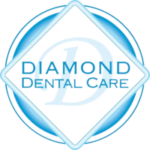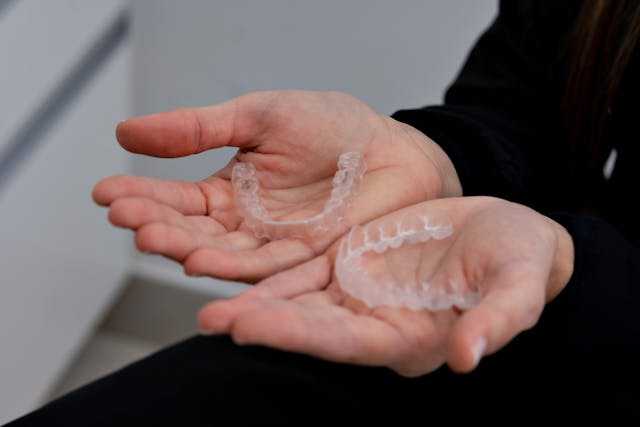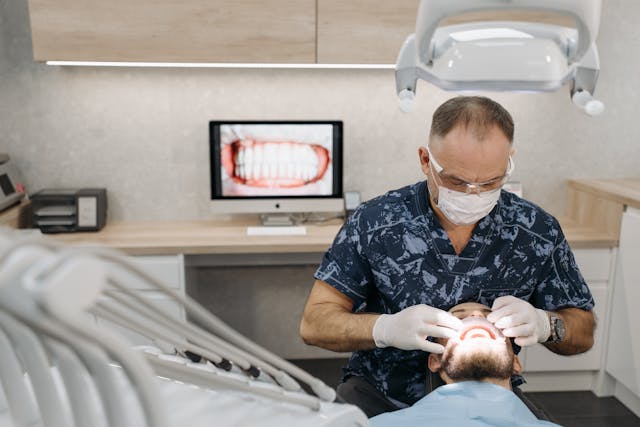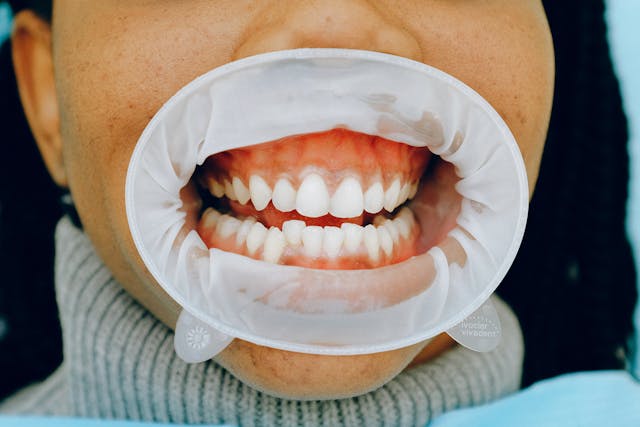Introduction
Dental crowns are a common dental restoration used to protect and strengthen teeth that have been damaged or weakened. Whether you’ve recently had a crown placed or you’ve had one for years, understanding the lifespan of dental crowns is crucial. After all, knowing how long your crown is expected to last and how to care for it can save you both time and money in the long run.
At Diamond Dental Care, we offer a variety of solutions to address most aesthetic concerns. During your visit, we’ll perform a thorough examination, take X-rays, and discuss your desired timeframe before presenting you and your parents with several treatment options. Given that some treatments may require specific timeframes, it’s advisable to book your appointment with us as soon as possible.
To schedule an appointment, simply call us at (909) 860-7579. You can also connect with us on Facebook or share your feedback on Yelp. Thank you!
What Are Dental Crowns?
A dental crown is a cap placed over a tooth to restore its shape, size, strength, and appearance. Crowns are often necessary when a tooth is too damaged to support a filling but not so damaged that it requires extraction. They can be made from various materials, including porcelain, metal, or a combination of both.
Why Do People Need Dental Crowns?
Dental crowns are needed for various reasons. They can protect a weak tooth from breaking, restore an already broken tooth, or support a tooth with a large filling. Crowns are also used to hold a dental bridge in place, cover misshapen or severely discolored teeth, and even cover a dental implant.
The Average Lifespan of Dental Crowns
On average, dental crowns can last between 10 to 15 years. However, with proper care, some crowns can last even longer. The material used for the crown, your oral hygiene habits, and your lifestyle choices all play a significant role in determining how long your crown will last.
Factors Affecting the Longevity of Dental Crowns
Several factors influence the lifespan of a dental crowns:
- Material Used: The type of material used for the crown is one of the most significant factors. For example, porcelain crowns are aesthetically pleasing but may not be as durable as metal crowns.
- Oral Hygiene Habits: How well you take care of your teeth and gums directly impacts the lifespan of your crown. Brushing twice a day, flossing daily, and visiting your dentist regularly are crucial steps.
- Diet and Lifestyle Choices: What you eat and your habits, such as grinding your teeth, can also affect your crown’s longevity.
- Quality of the Dental Procedure: The skill and experience of your dentist play a crucial role in the durability of your crown. That’s why choosing a reputable dental clinic like The Diamond Dental Care in Diamond Bar, CA, is essential.
Signs Your Dental Crowns Needs Replacement
It’s important to know the signs that indicate your crown may need to be replaced:
- Wear and Tear: Over time, crowns can wear down just like natural teeth. If you notice a change in how your crown feels, it might be time for a replacement.
- Pain or Discomfort: If your crown is causing pain or discomfort, it could be a sign that it’s not fitting properly or that there’s an underlying issue with the tooth beneath the crown.
- Visible Damage: Cracks, chips, or other visible damage to your crown are clear indicators that it needs to be replaced.
Types of Dental Crowns and Their Lifespan
Different types of crowns have different lifespans:
- Porcelain Crowns: These are popular for their natural look but typically last between 10 to 15 years.
- Metal Crowns: Made from gold or other metal alloys, these crowns are incredibly durable and can last up to 20 years or more.
- Porcelain-Fused-to-Metal Crowns: These crowns offer a balance of aesthetics and strength, usually lasting around 10 to 15 years.
- Zirconia Crowns: Known for their durability and natural appearance, zirconia crowns can last up to 20 years.
How to Extend the Lifespan of Your Dental Crowns
Taking proper care of your crowns can significantly extend their lifespan:
- Maintaining Good Oral Hygiene: Brush and floss regularly to keep your crown and surrounding teeth free of plaque and bacteria.
- Avoiding Certain Foods and Habits: Avoid chewing on hard objects like ice or using your teeth as tools, which can damage your crown.
- Regular Dental Check-Ups: Visit your dentist regularly to ensure your crown is in good condition and to address any issues early on.
The Role of Dental Hygiene in Crown Maintenance
Proper dental hygiene is crucial for the longevity of your crowns. This includes brushing twice a day with fluoride toothpaste, flossing daily, and using an antibacterial mouthwash. Additionally, regular professional cleanings at The Diamond Dental Care can help maintain the health of your crowns and prevent issues like gum disease.

Diet and Lifestyle Choices That Impact Crowns
Your diet and lifestyle choices can also affect the lifespan of your crowns. For example, sugary and acidic foods can weaken the crown and the tooth beneath it. Similarly, habits like smoking or teeth grinding can cause premature wear on your crowns.
What to Do If a Crown Gets Damaged
If your crown gets damaged, it’s essential to act quickly:
- Immediate Steps to Take: If your crown falls off or cracks, try to save any pieces and contact your dentist immediately.
- When to See Your Dentist: Any damage to a crown should be evaluated by your dentist as soon as possible to prevent further complications.
The Cost of Replacing Dental Crowns
Replacing a crown can vary in cost depending on several factors, including the type of crown and the complexity of the procedure. It’s essential to discuss your options with your dentist and explore insurance coverage or payment plans. At The Diamond Dental Care, we offer flexible payment options to help you manage the cost of dental care.
Common Myths About Dental Crowns
There are several misconceptions about dental crowns:
- Myth: Crowns last forever.
- Fact: While crowns are durable, they don’t last forever and may need replacement after several years.
- Myth: Crowns don’t require any special care.
- Fact: Crowns need the same level of care as natural teeth to ensure their longevity.
Choosing the Right Dental Clinic for Crown Placement
When it comes to crowns, choosing the right dental clinic is crucial. Look for a clinic with experienced dentists, a solid reputation, and modern technology. The Diamond Dental Care in Diamond Bar, CA, offers top-notch dental services, ensuring your crowns are placed with precision and care.
Conclusion
Dental crowns are a valuable solution for restoring damaged teeth, but their lifespan depends on several factors, including the material used, your oral hygiene habits, and your lifestyle choices. By taking good care of your crowns and regularly visiting your dentist, you can extend their lifespan and maintain a healthy, beautiful smile.
FAQs
1. How often should crowns be checked?
It’s recommended to have your dental crowns checked at least twice a year during your regular dental visits.
2. Can dental crowns last a lifetime?
While dental crowns are durable, they typically last 10 to 20 years. With excellent care, some may last longer, but they usually don’t last a lifetime.
3. Is it painful to replace a dental crown?
Replacing a dental crown is generally not painful, as the procedure is similar to the original crown placement. Local anesthesia is used to ensure comfort.
4. How can I tell if my crown is failing?
Signs of a failing crown include discomfort, visible damage, and changes in bite or fit. Regular dental check-ups can help catch issues early.
5. Are there alternatives to dental crowns?
Yes, alternatives include inlays, onlays, and veneers, depending on the extent of the damage and the location of the tooth.



